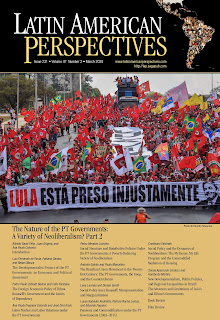Labor Market and Labor Relations under the PT Governments
There is some consensus on the foreign policy of Dilma Rousseff’s government that Brazil lost prestige and international influence because of her lesser personal dedication. Against this consensus, the paper presents two alternative hypotheses for explaining its unsatisfactory outcomes: that there was no change in policy objectives but an adaptation to a more hostile context and that its limitations were structurally related to dependency on global corporations and to the increasing rejection of South-South politics by domestic business. If this analysis is correct, the structural limitations described require that the struggle to achieve an independent foreign policy involve deeper political and ideological battles and a more radical questioning of neoliberal capitalism.
CONTINUE READING FULL ARTICLE HERE
Em 12 anos de governo o PT promoveu um importante movimento de inclusão pelo mercado de trabalho e pelo consumo com avanço da flexibilidade laboral. Apesar do crescimento do emprego e da renda, o alargamento da heterogeneidade do mercado de trabalho e o avanço da flexibilização resultaram no aprofundamento da condição de insegurança e vulnerabilidade dos trabalhadores em linha com as novas tendências que o capitalismo contemporâneo impõe ao trabalho. Essas tendências estão sendo aprofundadas no cenário pós-impeachment.


No comments:
Post a Comment